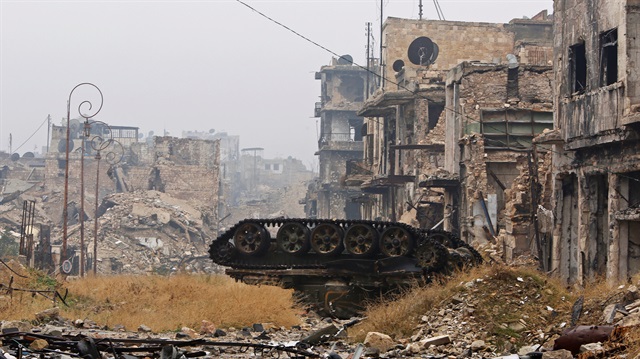
As we approach the year end, it is good to look back and take stock of the year gone past. The year 2016 has not been an easy one for the Muslim Ummah. The political and economic challenges, if anything, had worsened in 2016. As we look across the Muslim world, the political topography is indeed depressing. The perpetual turmoil of the Middle East, got worse in 2016 with the outbreak of war between Yemen and Saudi Arabia. The situation in Syria and Libya has, if anything, gotten worse. The human misery in Syria has gone beyond belief. Egypt, the bastion of the Arab World, has fared no better. The bright spots of the Muslim world, Turkey and Iran, have also had their share of turbulence. The attempted coup in Turkey appears to have set off a hornets' nest of political intrigue and purges. The impact of all these on the Turkish economy will not be superficial. Iran, which concluded its nuclear agreement with the US amidst high hopes for an economic rejuvenation, has not seen the peace dividend. Iran, it appears, had not negotiated some of the fine print which have now become stumbling blocks to economic reopening. Indonesia, the world's most populous Muslim country, may have gotten a handle on its separatist problems but religious extremism appears to be resurfacing. Malaysia, traditionally the pride of the Muslim world, has seen its reputation in tatters following accusations of kleptocracy of its ruling elite by the US Department of Justice.
If 2016 has been a rough year politically for most of the Muslim world, it has not been much better economically. Oil prices, which started falling in the second half 2014, hit a multi-year low of US $35 per barrel in January this year. While there has been recovery, it has been a year long struggle to get from $35 per barrel to slightly over $50 at year end. Whether oil prices have bottomed out and are really on a recovery path is anyone's guess. Unlike previous oil cycles, there is structural change now. The fracking of oil from shale has obviously tipped the global oil balance. The US, the world's biggest fracker, has in place new political leadership that is determined to build on the oil output regardless of the costs to the environment. With new players like Iran and Iraq desperate to export their oil, it is hard to be bullish about oil, at least in the near term. As oil prices remain low, the Muslim world's richest nations are increasingly vulnerable. With current account surpluses and reserves thinning and rising fiscal deficits, these countries are in a precarious position economically. It is scary to think of the consequences to these countries should oil remain at current levels for another 2 or 3 years. Oil prices aside, there will be other economic pressures. For the emerging markets of the Muslim world, Malaysia, Indonesia, Turkey etc. pressures will occur in their exchange rates as the US Federal Reserve begins to tighten interest rates. The capital outflow from emerging markets which already seems to have begun is likely to worsen in 2017. The more leveraged of these economies could see currency and/or banking crises in the year ahead. Despite claims to the contrary, the Muslim world has not diversified its economies. Below a superficial veneer of modernity, much of the Muslim world is nothing but basic commodity producers. Their colonizers had designed them as commodity producers and despite the political independence, these countries remain commodity producers more than half a century later. The economic dependence on the west continues unabated.
As we look ahead to 2017, there is little to cheer. All these vulnerabilities and precariousness point at a more basic missing ingredient. Good leadership that has vision and wisdom is what is lacking in most of the Muslim world. Countries like South Korea, Taiwan and Japan which have had much less resource endowment and perhaps even worse human misery have become economic superstars, thanks to hard work, foresight and good leadership. History has shown that Muslims are not incapable of hard work. As they had once dominated the sciences and administered globe stretching empires, the Muslim Ummah can rise if atrophy at the top does not weigh them down. While political leadership must lay the grounds for fair play, justice and rule of law, religious leadership should emphasize the importance of worldly knowledge and recognize that hard work towards halal effort is itself
. Such recognition could be the win-win prescription to reawaken the Muslim world.
Hello, the comments you share on our site are a valuable resource for other users. Please respect other users and different opinions. Do not use rude, offensive, derogatory, or discriminatory language.
The floor is all yours.








